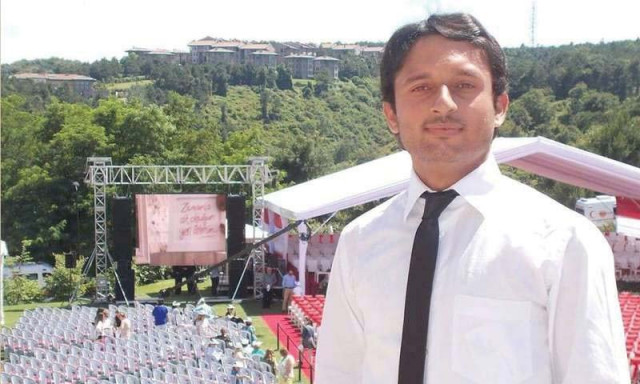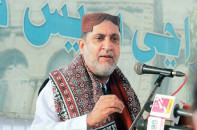Researcher from Quetta: Where there’s a will, there’s a wave
Imran Khan worked with team involved in research that recorded gravitational waves

Imran Khan. PHOTO: FILE
A ripple of excitement spread across the country after the role of two Pakistanis emerged in one of the most significant scientific discoveries of the century. One of the two is Imran Khan, a 25-year-old researcher from Quetta.
Khan worked with a team from the Gran Sasso Science Institute, one of the institutes involved in the research that recorded gravitational waves for the first time in history, confirming a major prediction of Albert Einstein’s 1915 general theory of relativity.
He credits this achievement to years of hard work and dedication and, of course, his mother.
“My mother [has] struggled as much as I have in getting me to this point in my life; she is always there to listen to my concerns and, sometimes, even complaints, which I only discuss with her. She is my real motivation and, most importantly, I always feel her prayers get me through very tough times,” he shared with The Express Tribune in an exclusive interview.
He was also inspired by his hard working father. “My father is an ex-soldier. Looking at his hard work in raising and educating all of his children has given me the strength to tackle challenges,” he added.
Hard work, not just luck, is what got Khan where he is today.
Currently an early stage researcher at the Italian National Institute of Nuclear Physics, Khan received one scholarship after another. Having completed his BSc in Telecommunication Engineering at FAST Peshawar campus, he went onto Koç University in Istanbul for an MSc in Optoelectronics and Photonics Engineering on a scholarship.
“I finished my MSc in September 2015 and the same month received a Marie Curie fellowship in the GraWIToN project; so, I’m now doing a PhD in Astroparticle Physics at the Gran Sasso Science Institute in Italy,” Khan explained.
“After developing good experimental skills with optical resonators, I aimed for application level research in photonics in my intended PhD program and the European collaboration VIRGO welcomed me in the Marie Curie ITN (initial training network) program GraWIToN,” he said, on getting involved in the research into one of the biggest discoveries of the century.
Khan also credits Professor Ali Serpengüzel, his teacher at Koc University in Turkey, for motivating him to become a good researcher.
When asked how he felt about Dr Nergis Mavalvala making headlines in Pakistan, he shared, “All the credit of this discovery goes to scientists and engineers who worked decades of their lives in designing, implementing this research topic and finally detecting the waves, such as, Dr Nergis Mavalvala.” He went onto to add that he felt “honored to be part of such teams of scientists and engineers, and to learn from them so to contribute in future towards the advancements in gravitational wave astronomy.”
Published in The Express Tribune, February 19th, 2016.



















COMMENTS
Comments are moderated and generally will be posted if they are on-topic and not abusive.
For more information, please see our Comments FAQ